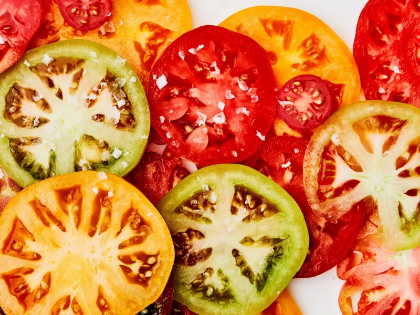Are Potatoes Anti-Inflammatory?
In spite of their reputation as a starchy food, potatoes are nutritious and may be included in a healthy diet when they aren't fried or covered in sugary toppings. They contain fiber, antioxidants, and anti-inflammatory substances like resistant starch. Choline, an important vitamin that supports mood management, cognitive function, and muscular activity, is present in one medium potato in the amount of 57 mg. Folate, potassium, and vitamin C are also present.
Antioxidants
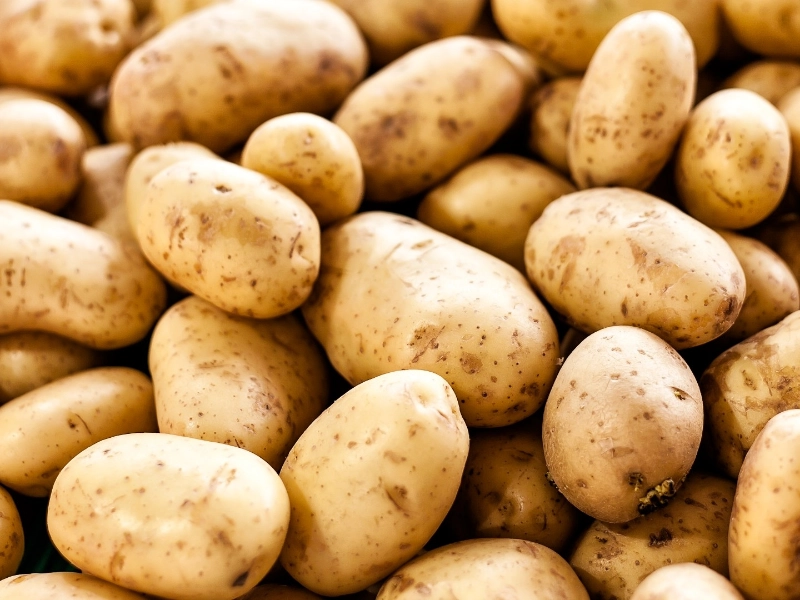
enduring starch
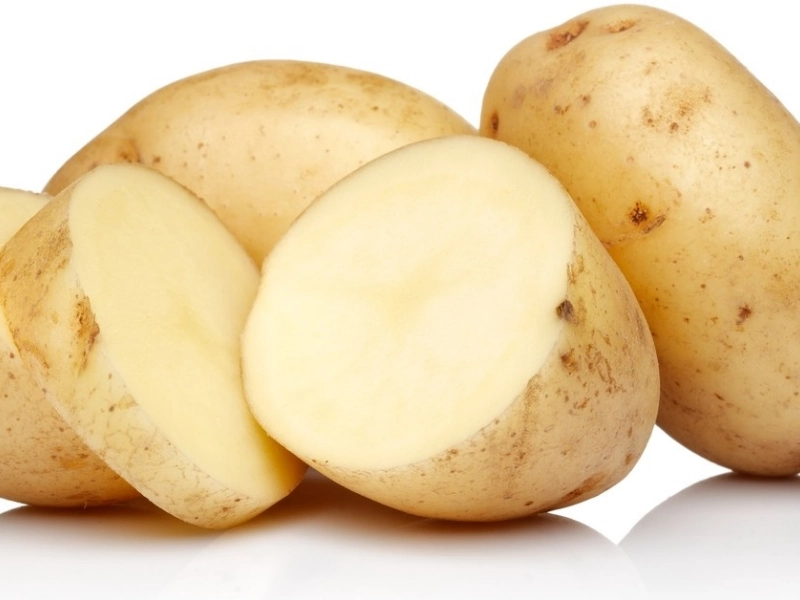 Your gut microorganisms will benefit from more resistant starch in your diet. Starches are fermented into advantageous short-chain fatty acids like butyrate by organisms in your digestive tract as they nibble on them. Butyrate strengthens your body's symbiotic relationship with the bacteria in your stomach and guards against conditions like colon cancer.
Potato-resistant starch, in contrast to other starches, doesn't dissolve into sugar in your digestive tract; instead, it travels intact to your large intestine, where it is digested by healthy bacteria. As a result, you make more SCFAs, which, according to Kelsey Butler, RDN, recipe developer at Coastal Dream Life, enhance insulin sensitivity and lower blood sugar levels after meals. Additionally, it facilitates better digestion of other foods, which lessens gas and bloating. These advantages might account for the decreased risk of colorectal cancer in those who consume more resistant starch. (10)
Your gut microorganisms will benefit from more resistant starch in your diet. Starches are fermented into advantageous short-chain fatty acids like butyrate by organisms in your digestive tract as they nibble on them. Butyrate strengthens your body's symbiotic relationship with the bacteria in your stomach and guards against conditions like colon cancer.
Potato-resistant starch, in contrast to other starches, doesn't dissolve into sugar in your digestive tract; instead, it travels intact to your large intestine, where it is digested by healthy bacteria. As a result, you make more SCFAs, which, according to Kelsey Butler, RDN, recipe developer at Coastal Dream Life, enhance insulin sensitivity and lower blood sugar levels after meals. Additionally, it facilitates better digestion of other foods, which lessens gas and bloating. These advantages might account for the decreased risk of colorectal cancer in those who consume more resistant starch. (10)
Fiber
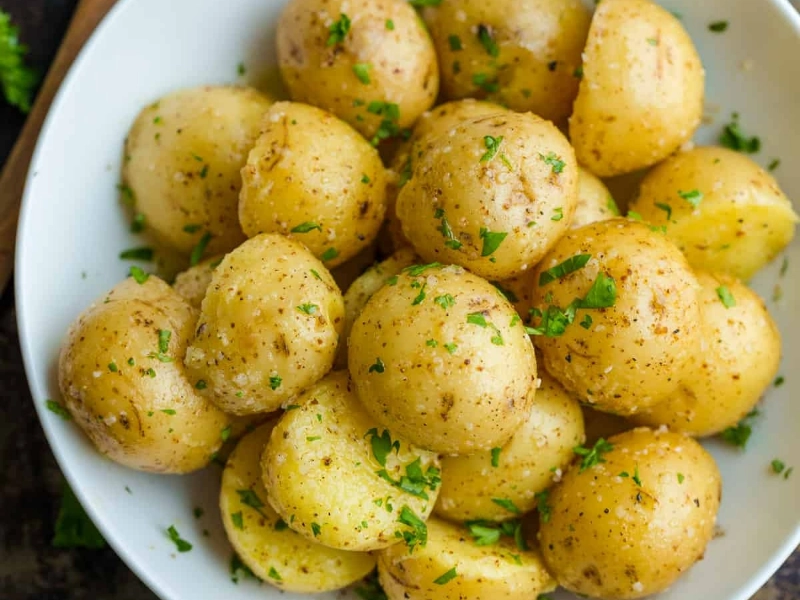 A good source of fiber is potatoes. The skins are particularly abundant in soluble fiber, which supports regularity and helps control blood sugar levels. Additionally, potatoes include vitamin B6, which aids in the body's production of energy by assisting in the breakdown of proteins and carbohydrates.
Additionally, potatoes contain vitamin C, which boosts the immune system and shortens the duration of a cold. Additionally, vitamin C increases the creation of collagen, which keeps the skin looking young and healthy.
Even though nightshades are frequently eliminated from many diets, including the DASH and anti-inflammatory paleo diets, research demonstrates that they are actually an essential component of a balanced diet when handled healthfully. They are rich in nutrients that promote a healthy lifestyle and, when frequently ingested, have been demonstrated to reduce inflammation. Additionally, potatoes naturally have less sodium and potassium, which lowers blood pressure. White potatoes are included in the vegetable category of the USDA's 2015–2020 Dietary Guidelines, along with corn, green beans, plantains, and cassava.
A good source of fiber is potatoes. The skins are particularly abundant in soluble fiber, which supports regularity and helps control blood sugar levels. Additionally, potatoes include vitamin B6, which aids in the body's production of energy by assisting in the breakdown of proteins and carbohydrates.
Additionally, potatoes contain vitamin C, which boosts the immune system and shortens the duration of a cold. Additionally, vitamin C increases the creation of collagen, which keeps the skin looking young and healthy.
Even though nightshades are frequently eliminated from many diets, including the DASH and anti-inflammatory paleo diets, research demonstrates that they are actually an essential component of a balanced diet when handled healthfully. They are rich in nutrients that promote a healthy lifestyle and, when frequently ingested, have been demonstrated to reduce inflammation. Additionally, potatoes naturally have less sodium and potassium, which lowers blood pressure. White potatoes are included in the vegetable category of the USDA's 2015–2020 Dietary Guidelines, along with corn, green beans, plantains, and cassava.
anti-cancer attributes
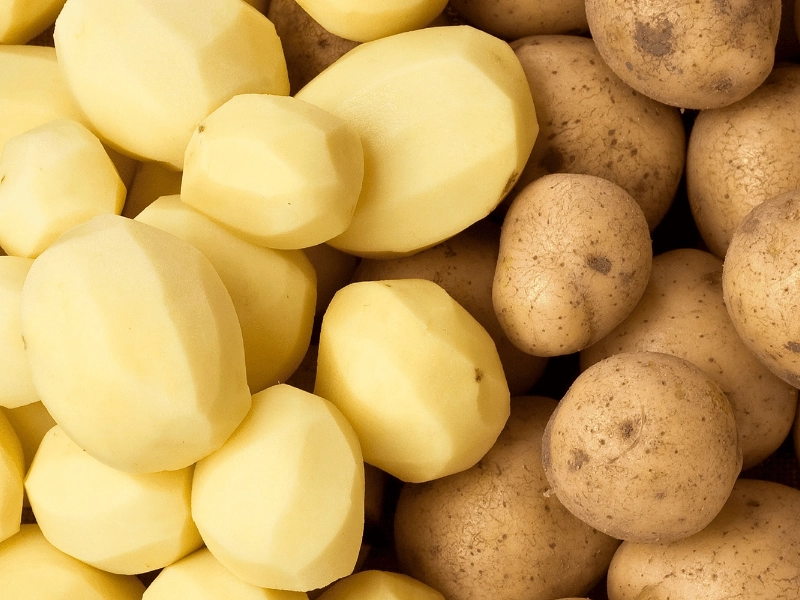 Vitamin A, which your body transforms into beta-carotene, is abundant in potatoes. Your immune system needs it, and low blood levels have been associated with a higher risk of cancer.
High levels of glycoalkaloids are present in purple potatoes, which may help prevent colon cancer. Glycoalkaloids, which are present in plants of the genus Solanum, kill cancer cells and stop their proliferation. In a laboratory experiment, the extract from baked purple potatoes stopped the growth of colon cancer stem cells and destroyed colon cancer cells.
When eaten whole, potatoes are a nutrient-rich food that can be included in a balanced diet when topped with vegetables, herbs, and protein-rich ingredients. However, eating potatoes that have been fried or covered in butter and sour cream causes inflammation. As an alternative, consider including them in stews and soups or baking them into wholesome baked potatoes with a sprinkle of chopped chili peppers. Chili peppers' capsaicin lowers inflammation by decreasing substance P, a pain transmitter found in your nerves.
Vitamin A, which your body transforms into beta-carotene, is abundant in potatoes. Your immune system needs it, and low blood levels have been associated with a higher risk of cancer.
High levels of glycoalkaloids are present in purple potatoes, which may help prevent colon cancer. Glycoalkaloids, which are present in plants of the genus Solanum, kill cancer cells and stop their proliferation. In a laboratory experiment, the extract from baked purple potatoes stopped the growth of colon cancer stem cells and destroyed colon cancer cells.
When eaten whole, potatoes are a nutrient-rich food that can be included in a balanced diet when topped with vegetables, herbs, and protein-rich ingredients. However, eating potatoes that have been fried or covered in butter and sour cream causes inflammation. As an alternative, consider including them in stews and soups or baking them into wholesome baked potatoes with a sprinkle of chopped chili peppers. Chili peppers' capsaicin lowers inflammation by decreasing substance P, a pain transmitter found in your nerves.




